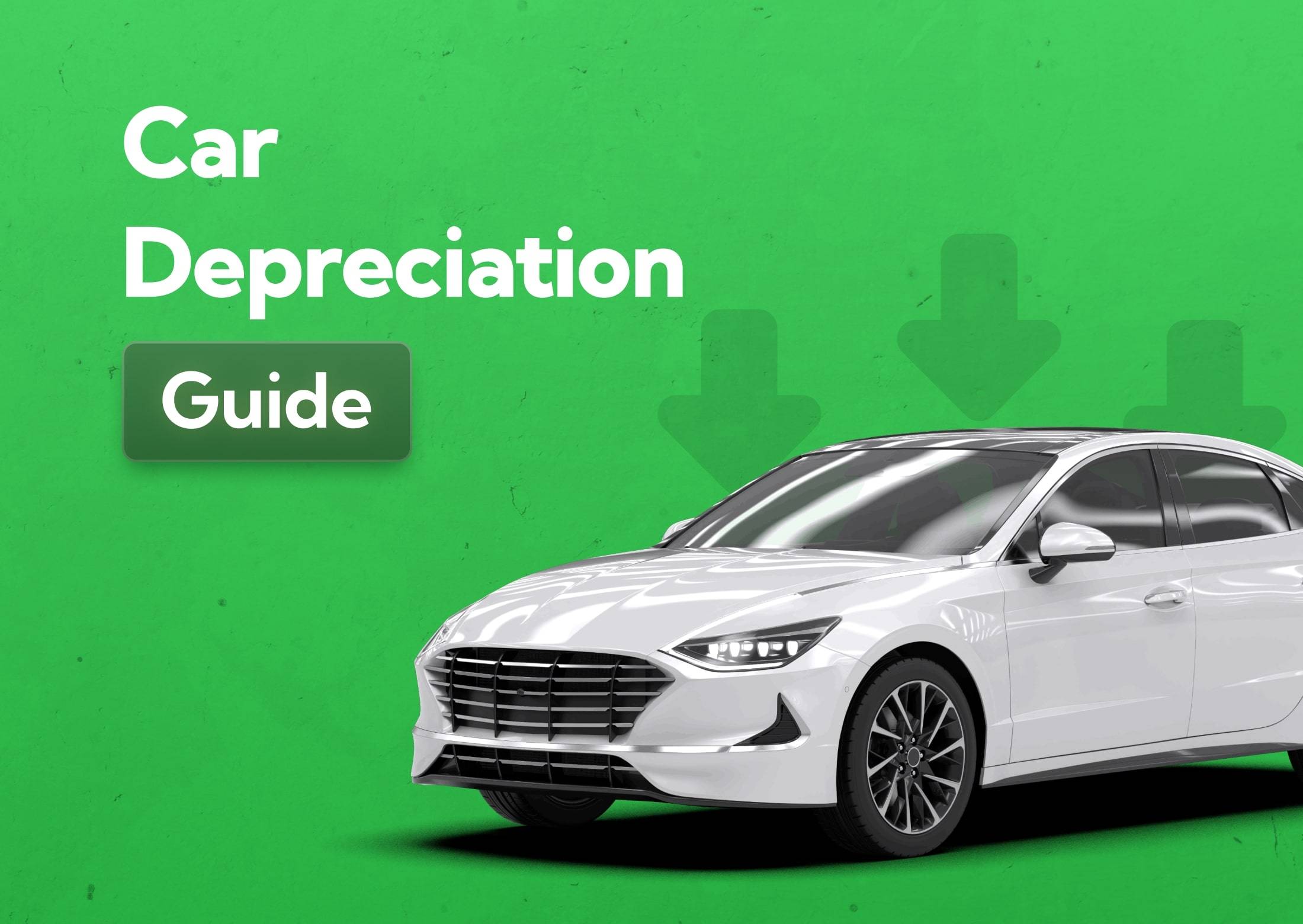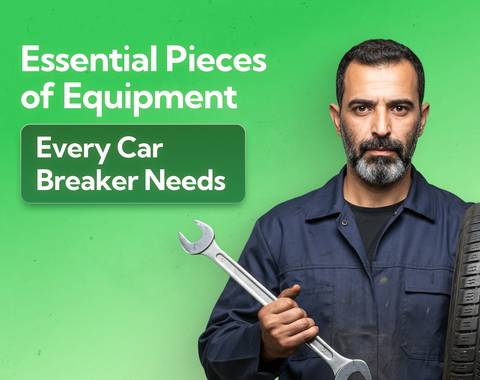Car Depreciation: The Ultimate Insider Guide
‘Depreciation’ is the term that’s used to describe the falling value of cars over time. Aside from classic cars, generally speaking; the older a car is, the less it’s going to be worth. Depreciation is almost always the biggest cost involved with owning a car.
Last updated: 16th October, 2025

Anthony Sharkey is COO at New Reg Limited (Car.co.uk, Trader.co.uk, Garage.co.uk), driving innovation in vehicle recycling, logistics, and customer experience.

Listen to this story
The problem is, car depreciation considers hundreds of different factors beyond just the age and mileage of a car; so it’s very difficult for the average vehicle owner to accurately gauge what a car is worth now, or into the future. Even if you do manage to work out what your car is worth, you will almost certainly find that the value changes again – based on who is buying or selling it.
If you’re confused, you’re not alone. However, it’s really useful to understand depreciation – because if you don’t; you could find yourself out of pocket when it comes to buying, selling, or part-exchanging a car.
Here at Car.co.uk, we’ve created a great & accurate car valuation tool; so we’re in a great position to explain everything that’s worth knowing about a car’s value and factors that affect depreciation. Including:
- New vs Used: Which depreciates quicker?
- How depreciation affects finance/lease deals
- Some of the fastest and slowest depreciating cars in the UK
Ultimately, we’ll walk you through exactly what you can do to reduce depreciation – both on your current car – and on any car you’re considering purchasing.
What's in this article
New vs Used: Some depreciation basics
The value of the car is at its highest when it’s just rolled out of the factory and has been delivered to a dealership. For the pleasure of that new car smell and being the first owner, you’ll pay a price that’s pretty close to the manufacturer’s ‘list price’.
The thing is, car manufacturers and dealerships are both businesses. If you buy that new car, you’ve got to remember that a chunk of what you’ve paid represents the profit that those businesses need to make – not to mention the VAT that’s included in the price. So, the biggest chunk of depreciation a car will usually ever experience is the amount its value drops when it leaves the dealership with its new owner behind the wheel.
How does depreciation affect finance or lease prices?
If you’re planning on financing or leasing a car, depreciation can play a big part in how much your monthly payment is.
Why?
Well, it’s all down to the future value of the car. If you’re financing a car – particularly through a PCP (personal contract plan) deal, you’ll be given a ‘guaranteed future value’ – the amount the car will be worth if you decide to buy it or use it to upgrade when you repayment term ends. If you’re leasing, the amount you pay is going to depend on what the car’s worth to the lease company when you hand it back.
Both of these things affect how much money the finance/lease company stands to make; so you better believe the company will factor in depreciation when they set up your deal!
If you choose a new car that’s going to depreciate quickly, your payments are going to have to make up for that. Therefore, considering depreciation could mean you get a better deal. If you want the very best deal, considering financing a used car will almost certainly mean you get a better deal – a reduced price initially and a minimal amount of depreciation in the longer term.
How to minimise depreciation
Let’s take a look at some practical steps you can take to minimise depreciation – not just as an owner – but also before you buy.
How to reduce depreciation before you buy
Think that the future value of a car you’re looking at is out of your hands? Think again. By following a few quick and simple tips, you can make sure you’re buying a car that’s going to retain as much value as possible.
Pick the right car
Fuel economy, safety, low running costs, reliability – these might not be things that get your heart racing when you’re shopping for a new car, but they’re what 95% of buyers are looking for. As such, these are going to be the same things that used buyers are looking for when the time comes to sell your car on. Pick a car that ticks these boxes, and it’ll help maximise the future value.
Choose a popular colour
Some car colours are timeless. Although beige, bright orange or candy pink might have a few years of looking fashionable, they’re the kind of unique colours that’ll really narrow down your audience when it comes to reselling. Choose a popular colour, and you’ll stand a better chance of getting the price you want when you sell your car on.
Look into previous resale values
If you’ve narrowed your choice of vehicle down to a small number, now’s a good time to look at how the make or model has retained values in previous years. This is a good indication of what future values are likely to be.
Buy used
If the biggest hit a vehicle’s value is going to take is when it’s first driven off the forecourt, you stand to save a lot by buying a pre-owned vehicle. It’s not uncommon for vehicles to lose 40%-70% of their purchase price in just 12 months – so buying used could save you a small fortune.
Look for a transferable warranty
New car warranties often look very impressive – with some lasting 7 years or 100,000 miles. What many people don’t realise is that these warranties only apply to the first owner, or the scope of the cover is reduced when it’s passed on. Look for a warranty that’s 100% transferable for peace of mind and maximum value retention.
How to reduce depreciation as a vehicle owner
There’s always going to be some deprecation involved as a car gets older and covers more miles – however, you can reduce this loss of value to an absolute minimum. This is how.
Don’t crash!
Accident damage, no matter how minor, will impact the value of your car. Of course, more major accidents can significantly reduce resale values, so careful driving can reduce depreciation.
Keep on top of servicing and maintenance
A car that’s sold with a ‘full-service history’ is likely to be worth a lot more than one with no paperwork or service record. Keep your car serviced and keep evidence; it’s likely to reduce depreciation significantly.
What the experts say

William Fletcher MBE
Buy an aftermarket warranty
An aftermarket warranty is a sure-fire sign that you’re taking looking after your car seriously. What’s more, it’ll show a potential new owner that any problems have been taken care of. Warranties can be found at extremely competitive prices – so can virtually pay for themselves when you consider reducing depreciation.
Keep the mileage low
The fewer miles a car’s done, the better condition it’s likely to be in. Obviously, you’ve bought the car to use – but if you can avoid adding unnecessary miles, you’ll keep the value as high as possible.
Keep it clean and tidy
Simple one. A clean and tidy car is going to be more appealing and fetch a better price. Many buyers also consider a clean car to be a sign of one that’s been looked after mechanically too.
Don’t be tempted to modify your car
Fancy an aftermarket spoiler or new alloys? Go for it – but be aware that when you do, you reduce the value of the car and reduce the potential audience who’ll buy it. Some modifications can make people (rightly or wrongly) assume that the car’s been driven hard too – so standard is always best if you want to retain as much value as possible.
How much has your car depreciated?
We’ve talked a bit about why depreciation and car value matters when it comes to buying or selling – but why does it matter if your car’s just sitting on the drive?
Well, understanding how much your car is worth is an essential part of making sure you’ve got the right insurance cover. Insure your car with a value that’s too high, and you’re likely to be paying more than you need to – but insure a car with a valuation that’s too low, and you could find yourself seriously out of pocket if it’s stolen or written off.
To understand how depreciation is impacting your current car, use our car depreciation calculator for an up-to-the-minute figure of what your vehicle is worth.
What are some of the fastest and slowest depreciating vehicles?
Want to make sure your next car retains as much value as possible? Or looking for a pre-owned bargain? Check out some of the UK’s fastest and slowest depreciating vehicles:
Fastest depreciating cars
- Vauxhall Astra
- Fiat 500C
- Jaguar XF
- Citroen C1
- Peugeot 108
- Mercedes S-Class Cabriolet
- Audi A8
- Peugeot 308
- Fiat Tipo
- Maserati Quattroporte
Slowest depreciating cars
- Porsche Panamera Sport Turbo
- Lamborghini Urus
- Range Rover Evoque
- Tesla Model 3
- Porsche Taycan
- Porsche 911
- Alpine A110
- Land Rover Defender
- Porsche Cayenne Coupe
- Porsche Macan
Depreciation: The final word
Depreciation and car values go hand-in-hand – and unless you’re buying and selling exotic supercars or pristine classics, there’s no way of avoiding it. However, depreciation isn’t always a bad thing. A heavily depreciated used car can be an amazing way of getting a high-spec vehicle on a reduced budget – and when you add an extended warranty, you reduce the risks of used-car problems too.
You might not be able to get around depreciation – but whether you’re buying or selling, following the tips we’ve outlined here will make sure you maximise what’s in your wallet.
About Car.co.uk

Share on
Latest news & blogs










